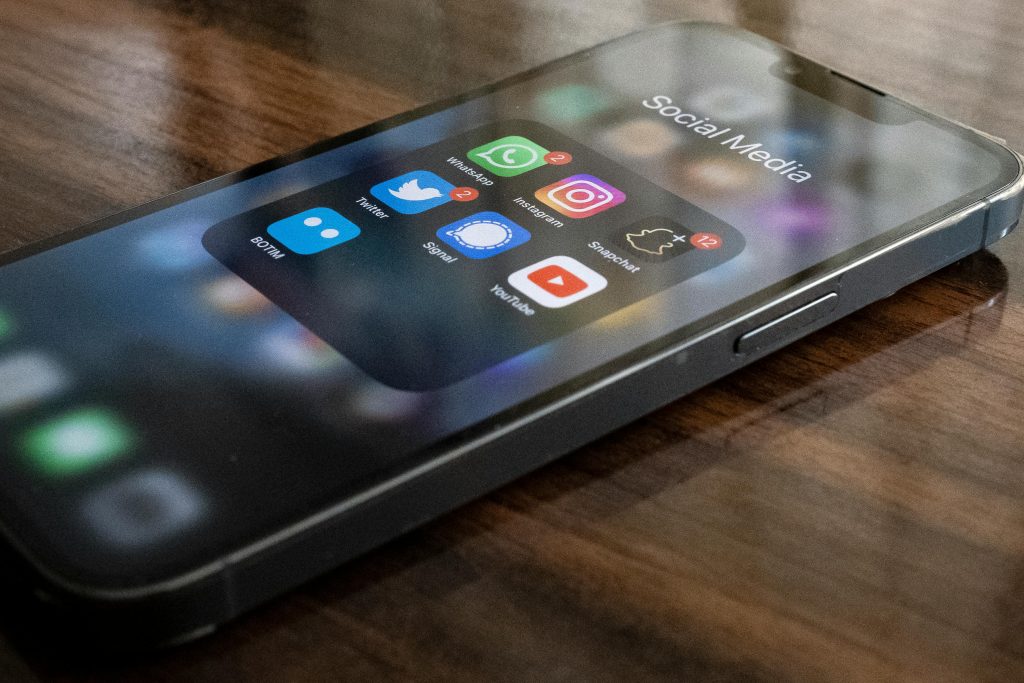Initially, our phones used to alert us on two occasions: when we received a text message or a phone call. Then came the smartphones, where virtually all applications will send a notification to give you information about something you subscribe to.
For instance, your social media apps could let you know about new likes, comments, or posts from your followers or interests. Mind you, most social media users have presence in about five different platforms, from Facebook to TikTok, X (formerly Twitter), Instagram, YouTube, and LinkedIn. At the same time, if you are into gambling games, apps from operators like Bruce casino could give you updates about new bonus deals, tournaments, or the latest games.
Add notifications from ride and food-hailing apps, news applications, emails, and shopping apps, and our devices are always buzzing left, right, and center. In most cases, the fix for the constant pop-ups and alerts is muting the applications and only accessing the information when you log on to the individual platforms. But then sometimes, this doesn’t usually solve the constant buzzing, as there might be more to it than just notifications, as you’ll discover in today’s post.
A Generation Plagued by Constant Alerts

Phone interruptions are everywhere. The average teen is bombarded with roughly 237 app notifications per day. A quarter arrives during school hours and 5% late at night. This information is from a report by the University of Michigan Health C.S. Mott Children’s Hospital and Common Sense. The research also found that the median phone use among adolescents was nearly four and a half hours daily. Some use their phones for just minutes, and others for over 16 hours.
The study drew on data from 203 tweens and teens aged 11 to 17 who own smartphones. It also leveraged insights from the Common Sense Youth Advisory Council. Smartphones have become constant companions over the past 15 years. They offer instant access to friends, entertainment, and stress relief. But their designs encourage prolonged use. The seemingly small notification interruptions add up. Each buzz or pop-up might seem harmless at the moment, but together they map out a crowded attention landscape that deeply affects how we live our daily lives.
Why Is Your Phone Vibrating Randomly?
It’s worth understanding why your phone keeps vibrating before diving into fixes. Some often-overlooked reasons could be driving the constant buzz. Here are the most common:
Ghost Vibrations
Your phone can buzz out of nowhere, leaving you wondering if it’s haunted. In reality, hidden system processes are often to blame. These are the:
- Silent banking alerts quietly verify transactions
- Background security checks
- Government emergency tests, or
- Quick system updates
One Reddit user even realized their ‘ghost vibrations’ were just their banking app working behind the scenes.
The Fix: It is simpler than you think. Check which apps have permission to send silent alerts and review system notification settings. Also, be sure to adjust or mute apps causing background vibrations.
Phantom Vibrations
Have you ever felt like your phone is buzzing in your pocket, but there’s no notification? This is known as Phantom Vibration Syndrome (PVS). It’s not a glitch; your brain is playing tricks. Studies show that frequent phone users often feel the sensation of fake vibrations because their minds are constantly anticipating alerts. In fact, over 90% of heavy smartphone users report experiencing phantom vibrations at least once a week.
The Fix: You can fix this issue by reducing phone check-ins or turning off non-essential notifications. Also, try to switch to Do Not Disturb mode for at least 3 hours a day to retrain your brain.
Sensor Malfunctions Causing ‘Ghost Vibrations’
Phones detect movement using sensors like the accelerometer and gyroscope. Some of these sensors malfunction, and it can trick your phone into thinking it needs to vibrate. This creates mysterious ghost vibrations that seem to come from nowhere.
The Fix: Begin by checking your sensors with built-in diagnostic tools. Samsung users can dial #0# and select “Sensor Test,” while OnePlus, Xiaomi, or Pixel owners can try apps like CPU-Z or Phone Tester. You can also calibrate the gyroscope in Settings if it is off. Persistent vibrations may also mean the motor itself is wearing out. So seek professional attention.
NFC or Bluetooth Interference
Sometimes your phone buzzes for no reason because it’s picking up NFC signals or struggling with a shaky Bluetooth connection. These tiny wireless interactions can trigger mysterious vibrations that leave you scratching your head.
The Fix: Turn off NFC in Settings > Connected Devices > NFC & Payments. You can also switch off Bluetooth for a day. If the buzzing stops, you’ve found the culprit.
Malware or Rogue Apps Using Vibration as a Hidden Signal
Some malware can hijack your phone’s vibration motor and use it as a secret signal when you enter passwords or other sensitive information. Such rogue apps can hide in unexpected places, making your device buzz for reasons you can’t see.
The Fix: Scan your phone with Malwarebytes or Bitdefender Mobile Security and check Accessibility Services for suspicious apps. Moreover, remove any unknown programs under Settings > Apps > Show All Apps.
Out of Sight, Out of Mind

Managing notifications doesn’t have to be complicated, but it does take some thought. One of the simplest steps is turning off alerts that aren’t essential. Those social media likes, game updates, or shopping app deals might not be as important as they seem. Most of them can wait.
Batching notifications is another useful strategy. You don’t have to check every ping immediately. Instead, set specific times during the day to review messages, emails, and app alerts. Notification batching reduces constant interruptions and gives your brain space to focus.
Many phones also have built-in focus or ‘Do Not Disturb’ modes. These let you silence everything except calls or messages from key contacts. You can even schedule these modes automatically based on your work hours or personal time. Almost all these small changes may feel minor, but they give you control back over time. Less buzzing means more peace and fewer moments of unnecessary stress.





















